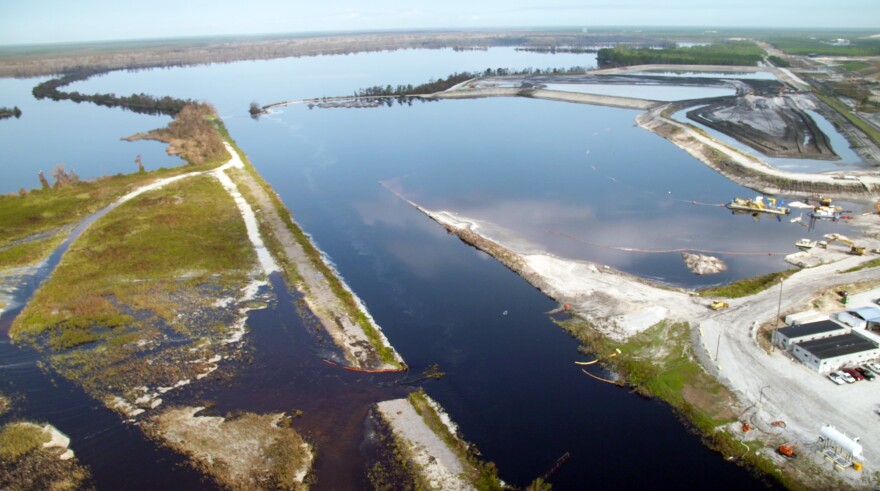Initial water tests by Duke Energy have found above-normal levels of arsenic and heavy metals in the Cape Fear River, downstream from the flooded cooling lake at Duke's Sutton plant near Wilmington. But the company says it's not harming water quality.
Duke released the test results Sunday night from tests performed on Friday, both upstream and downstream from the Sutton plant. Spokeswoman Paige Sheehan says the tests show that discharges from the lake are not a danger.

“What we have seen is a little bit of that arsenic is moving out into the river. Again, very much within the standards,” Sheehan said.
Within state water quality standards, that is. Sheehan says the test levels could fluctuate until the river recedes.
"When we look for other coal ash constituents, other trace elements that you would find in coal ash, they are not showing up in our initial test results in the river water. Again we are continuing to monitor the situation and take additional tests, as is the state. And we'll compare those results and discuss those and make sure that we are doing everything necessary to protect the environment," Sheehan said Monday.
COAL ASH BASIN FLOODED
Arsenic is a component of coal ash, which is left after burning coal and can be toxic. The old coal-fired Sutton plant was retired in 2013, and Duke now operates gas-fired units on the site. But coal ash is still stored there. The river also overran a coal-ash basin built in 1971, but Duke says it believes a retaining wall is keeping it from overflowing. A newer basin, built in 1948, appears unaffected by the storm, Duke said.
Hurricane Florence hit as Duke was in the midst of digging up coal ash and moving it to a new, lined landfill. The storm eroded part of the new landfill, spilling the equivalent of about 180 dump trucks of coal ash on nearby land.
Meanwhile, a small amount of coal ash also spilled at a Duke plant in Goldsboro, in east central North Carolina.
And in both Goldsboro and Wilmington, the company has acknowledged the release of cenospheres, another byproduct of burning coal. They're lightweight hollow beads of alumina and silica. Though Sheehan said they're different from coal ash, they're also regulated by the government.

“I don't have a current estimate on how many cenospheres left our facility. But what we do know is they disperse over time in the river and with the churn in the river they should be disappearing,” Sheehan said.
PLANT STILL CLOSED
The gas-fired Sutton plant remains closed, and Sheehan says it's not clear when it will reopen. Duke shut down the plant and evacuated workers last Friday (Sept. 21) after the flooding river filled it with about a foot of water. Duke still must evaluate damage and make repairs before it can begin generating power again.
The good news, Sheehan says, is that water levels appear to be going down in Sutton Lake.
Environmental groups have said coal ash has been observed leaking into the river. State officials are doing their own tests and results are expected later this week.



